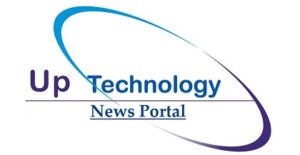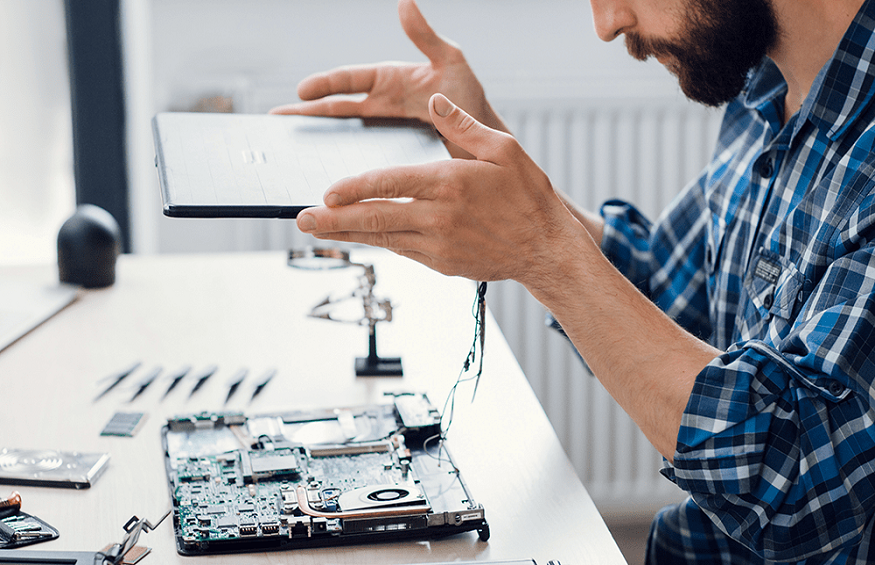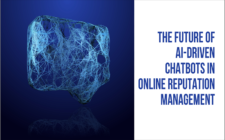We have to stop thinking that recycling is a panacea. Agnes Beaulieu, CEO of Insertech Angus, is convinced that before recycling, you have to reuse. For 20 years, the non-profit company has been repairing and selling thousands of computers a year, a demonstration of what can be done to reduce the impact of our technology consumption.
Sometimes small ideas lead to the most ambitious projects. Blowing out its 20th anniversary this year in relative anonymity, Insertech Angus started out with a modest computer repair shop and then employed young adults in reintegration. Since that time, the company has refurbished and then sold 175,000 computers in the Montreal community.
“These pieces would end up, in the worst case, in a landfill, or in the best case, in recycling,” explains Agnes Beaulieu. They would be recycled properly, but they would be destroyed. We say that there is a step which is more important and more interesting for the environment, which must be done before recycling: reuse. “
Here is the second portrait in a series of Montreal companies that apply the principles of the circular economy on a daily basis. According to the Organization for Economic Co-operation and Development (OECD), a global economy that systematically reuses what it produces would reduce the extraction of its natural resources by up to 80%.
Insertech Angus collects the computers of companies which renew their IT equipment. It repairs these devices, securely erases hard drives, keeps the pieces useful for future repairs, and recycles the rest. Computers refurbished to professional standards are then sold at a fraction of the price, in stores and online.
Refurbish, clean, repair: these options are often overlooked in favor of the purchase of a new device. For Agnes Beaulieu, reuse and recycling should be two distinct stages of a more circular model.
Upgrading a computer to a professional level would extend its useful life by three years, according to an analysis by the International Reference Center on the Life Cycle of Products, Processes and Services (CIRAIG) commissioned by Recyc-Québec in 2011.
By comparing refurbishment and recycling of computers, this study looked at various “categories of damage”, such as human health, ecosystem quality, climate change and resources. It concluded that “it thus appears clearly that the refurbishment process is the most advantageous from an environmental point of view, for all the categories of damage studied”.
According to this CIRAIG analysis, recycling 1,000 computers reduces greenhouse gases (GHGs) by 16.6 tonnes of CO2. If those same computers were refurbished, the GHG reductions would be almost 10 times greater.
Changing the consumption paradigm
It’s easy to forget the significant resources it took to produce your new phone or laptop.
Rare metals such as lithium and cobalt contained in these devices are becoming increasingly rare and the repercussions of their extraction on the environment are great. And that’s without counting the volumes of energy and water required to manufacture batteries, circuits and other electronic chips.
Besides the rapid development of technologies and trends, planned obsolescence also pushes the consumer to renew his electronic devices.
Without serious regulation, consumers are particularly vulnerable in this regard. At present, )to counter planned obsolescence, and Italy recently fined the giants Apple and Samsung for this scheme, but these initiatives are the exception to the rule.
To this, Agnes Beaulieu also adds what she describes as “psychological obsolescence”. She believes that collectively, you have to be aware of your technological needs and make thoughtful purchases.
she says. People find themselves victims: they buy a computer and they are told it cannot be fixed. “Sorry, this is no longer guaranteed.” It does not make sense that consumers are victims of big manufacturers or big traders. “
It is in this perspective of education and ” empowerment ” that Insertech Angus invests many efforts in the community aspect of its mission. The company organizes free “repairs” where volunteer technicians help the public diagnose and solve their computer problems, always with the aim of prolonging the life of the computers.
Insertech Angus volunteers also go to seniors’ residences to offer introductory workshops to seniors who often have a lack of computer skills.
Finally, the organization has set up a repair center where the community can come to diagnose a computer by certified technicians.
“Maybe it just needs to be fixed, or even cleaned up, or have an increased memory,” says Agnes Beaulieu. So there is no pressure to buy. We will be proposing interesting solutions both environmentally and economically. “
In this regard, the company has ISO 14001 certification in environmental management, and its refurbishment work complies with the Standard for the reuse and refurbishment of electronic products managed by the Bureau for the qualification of recyclers. All devices sold by Insertech Angus come with a warranty




